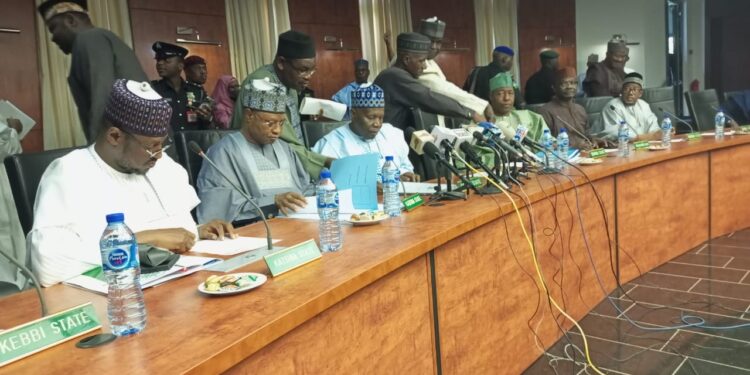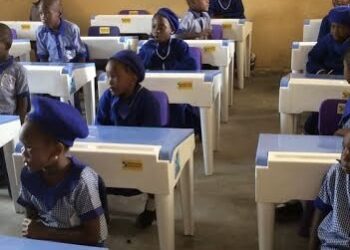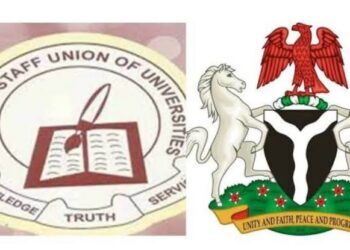By Israel Bulus, Kaduna
The Northern State Governors Forum (NSGF) under the leadership of Alh. Muhammad Inuwa Yahaya has lamented the regions number out-of-school children.
Inuwa expressed the forum’s displeasure in a communique issued on Tuesday at the end of its meeting held at Sir Kashim Ibrahim House in Kaduna.
He disclosed that, Northern Nigeria currently bears the burden of the highest number of out-of-school children in the world, noting this is an unacceptable reality the forum must urgently address.
” Every child deserves access to quality education and the opportunity to develop the skills necessary to succeed in today’s rapidly changing global economic landscape.
“As leaders, we have a moral obligation to invest massively in education and skills development, healthcare, and social services to unlock the full potential of our youth and empower future generations,” Inuwa maintained.
Meanwhile, It would be recalled that the Northern Governors were in Washington DC for a security summit t fashion ways toward ending the scourge of insecurity in their region.
While commenting on the State of insecurity, The Chairman, who is the Governor of Gombe State, sympathized with the people of Kaduna, Katsina, Niger, Plateau, and Zamfara States, over their unprecedented security challenges recently.
He urged the states governors to stand together in solidarity by offering a firm commitment to supporting their fellow northern brethren during their difficult times.
According to him, security remains top on their agenda, and during their last meeting, they reaffirmed their willingness to work with the Federal Government to provide lasting solutions to the security challenges bedeviling their region.
” We have had various engagements with the National Security Adviser, service chiefs, a coalition of northern civil society groups, and other relevant stakeholders on charting a way forward for sustainable peace and stability in northern Nigeria.
Commenting on the State Police, the Chairman noted that, as the nation continues to deliberate on the issue of state police, it is important that they begin to explore state policing models that are built on the foundation of cooperation and collaboration amongst their northern states.
” Economic development is paramount to our region’s prosperity. We consider economic development as the long-term solution to our security challenges.
” In this regard, the revitalization of the New Nigeria Development Company (NNDC) is at the heart of our economic agenda for northern Nigeria, stressing we must also explore innovative ways to invest in critical infrastructure capable of unlocking the huge industrial and economic potentials of the northern region.
” Regional integration remains a cornerstone to their collective vision for a prosperous northern region and urged the forum to deepen their collaborations in infrastructure development, human capital enhancement, trade, security cooperation, and cultural exchange.” He added.
The Kaduna State Governor, Sen. Uba Sani, who is the host, said since their inaugural Meeting, they have individually and collectively fashioned workable strategies and implemented some measures to tackle their security challenges.
” We have made remarkable progress in degrading criminal elements laying siege to our communities. The Federal Government under the dynamic, focused, and courageous leadership of President Bola Ahmed Tinubu, GCFR has demonstrated total commitment to winning the war against terrorism, banditry, kidnapping, and other forms of criminality. It has strengthened its partnership with the Northern States and sustained its support to us.
” Today’s meeting allows us to look at our successes and challenges so far in the war against terrorism, banditry, and kidnapping and fashion new strategies for a final push against these enemies of development.
Our Correspondent reports that the meeting was attended by Gombe State Governor, Kaduna, Nasarawa, Kebbi Borno, Zamfara, Katsina, and Bauchi State











